The range of wood-imitating porcelain stoneware collections continuously expands. The first tile series produced about ten years ago, looked ordinary and trivial. Gradually, using the innovative digital printing equipment, tile manufacturers have reached an unparalleled similarity of porcelain stoneware with natural wood. Nowadays, tile surfaces reflect the minute nuances of wood texture and chromatic variations. What are the perspectives and challenges for the wood effect porcelain stoneware offered by the Italian brands? We would like to focus on three dominating trends observed in the course of evolution of wood effect porcelain stoneware: larger sizes, wider color gamut and experiments on blending wood with other textures. Let's consider each trend.
The wood-imitating tiles become larger in size.
Traditionally, wood effect tile is manufactured as elongated rectangles, which, when set with minimum joints, resemble the conventional wood flooring. However this tile shape is not the only one. Settecento and Self have already presented the wood effect hexagons. Wood imitating planks are available in the portfolios of such brands as Caesar (Root), Vallelunga (Wood'ax), Abita (Trendwood).

The planks are 120 cm long. Two or three years ago one would not find such long porcelain stoneware items. Today it is absolutely common and is regarded as a sort of a pass to the premier league of the top-ranked ceramic tile manufacturers. Some brands offer porcelain stoneware tile even of greater length.
Soleras by ABK includes the tile of 20×170 and 40×170 cm.
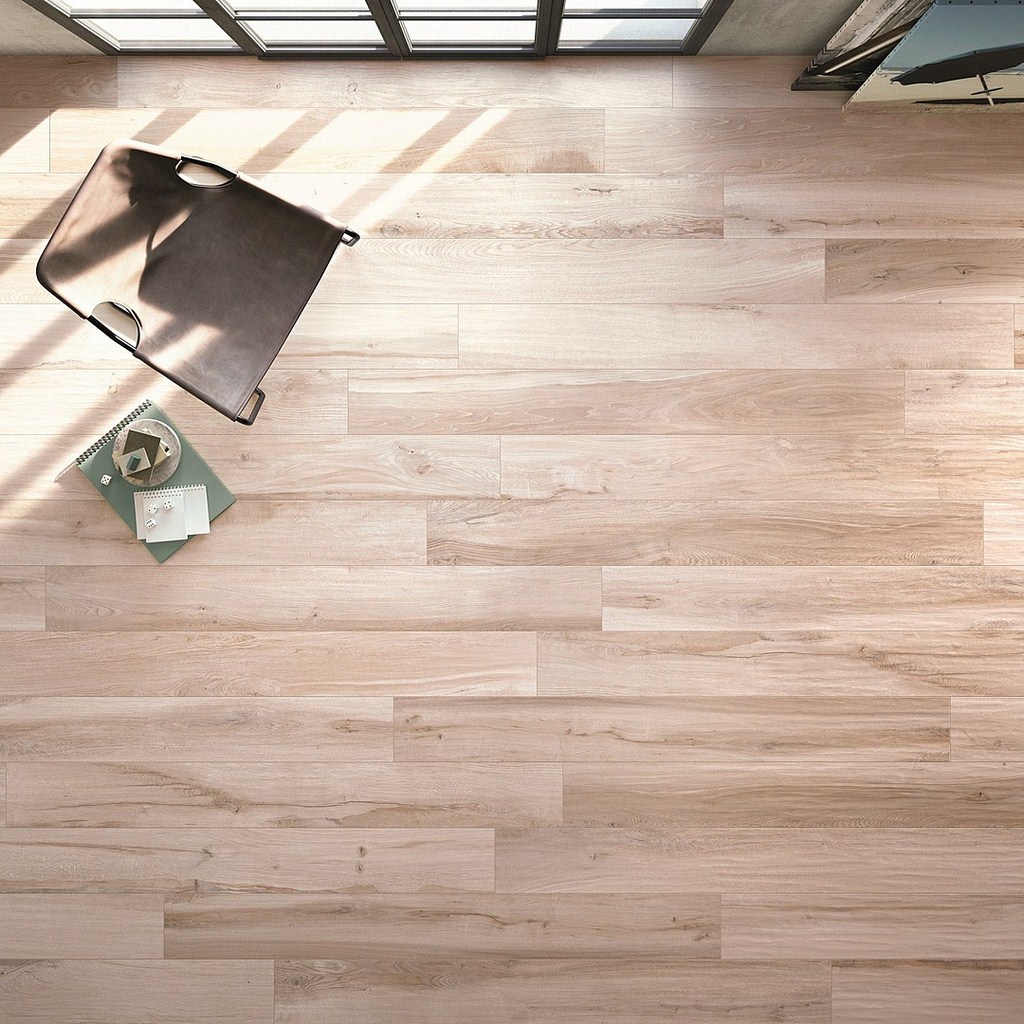
The cutting-edge Auto-leveling technology makes tile extraordinary flexible (see the photo below).
However, there is always room for perfection. Slimtech, the fine porcelain stoneware range by Lea Ceramiche, includes the items 200 cm long.
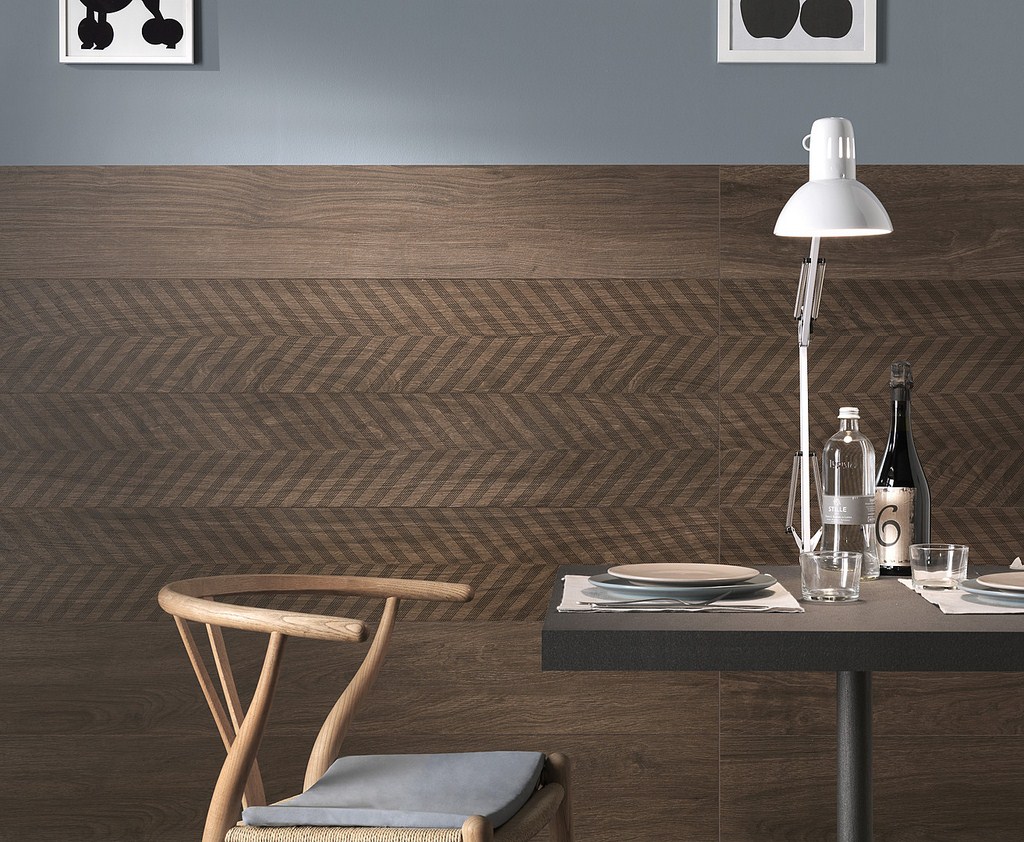
Type 32 is remarkable not only for its size, but also for original patterns, which create the impression of even greater length and motion. The ground-breaking design solutions will be particularly considered below. Speaking about tile sizes, we should admit that the length of 150-200 cm becomes increasingly common and is not the limit.
The wood effect tile also evolves in the direction of surface finishes and color gamut.
High-quality imitations of wood, pleasing to the eye and to the touch, give way to those more exquisite and exceptionally rare. The manufacturers keep experimenting with surface finishes: gloss, antiqued "rubbed", petrified, painted wood, marks of burning, and other ingenious designer solutions.
Thus, Bali by Ariana features banana wood. The resulting tiled surfaces look fresh and unconventional due to the exclusive shadings and different directions of grain (lateral and transverse).
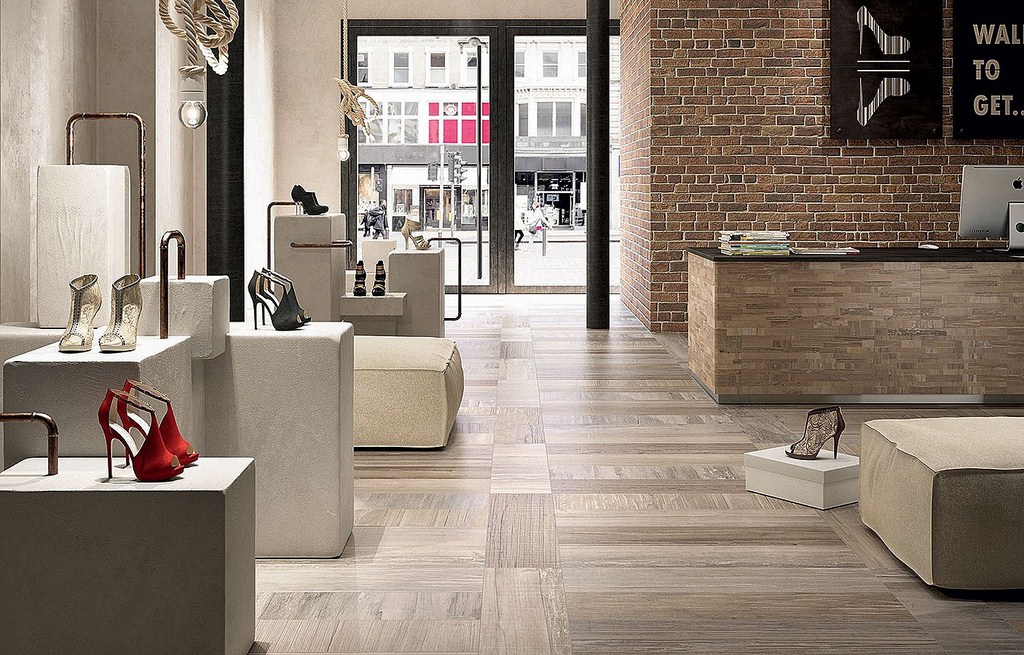
In 2014, Emilceramica launched Millelegni, a comprehensive project worth of particular attention. It embraces wood species from different spots of the globe. Due to various reasons, the range of wood species used in architecture is limited. The latest technological advancements in ceramics industry eliminate all obstacles from selection the wood pattern you like. Millelegni is conceived as an "ongoing" collection with continuously enhanced assortment. For the moment, the series includes four species of wood from Japan, Italy, Scotland and the USA.
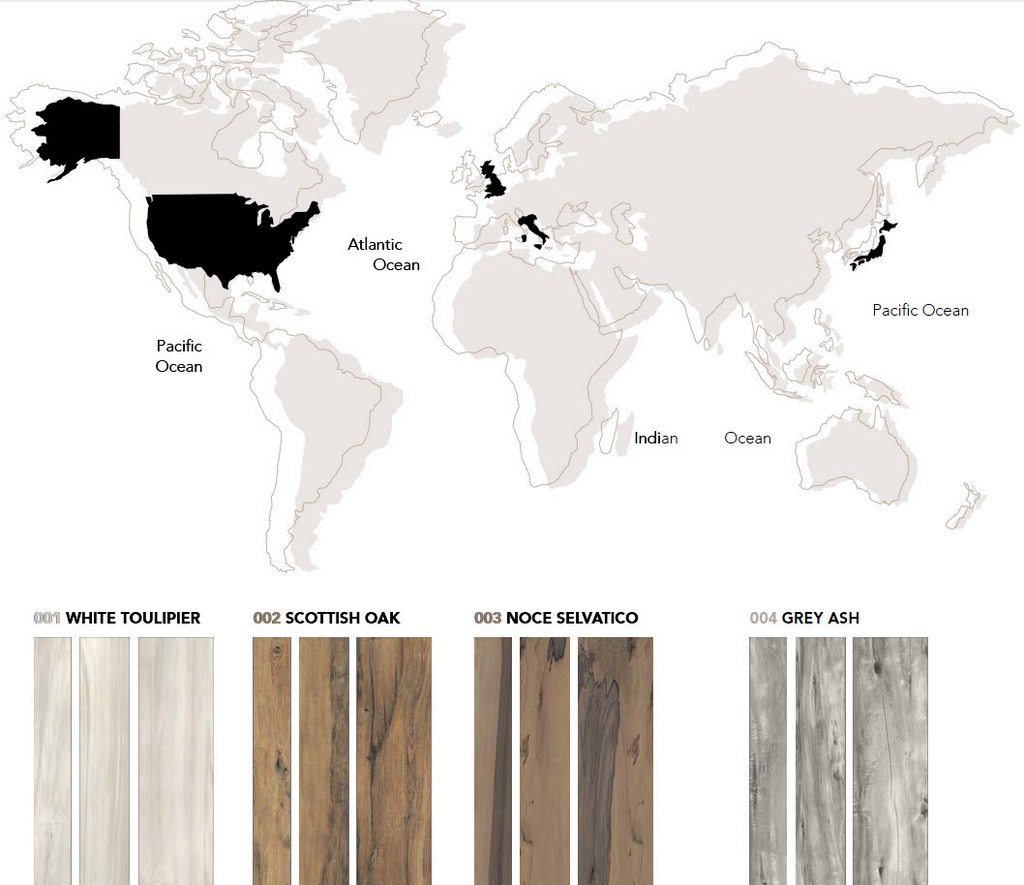
For example, the Scottish Oak variation is inspired by the old whisky barrels. For several years wood absorbs various substances from the liquid and tinges unusual colors.
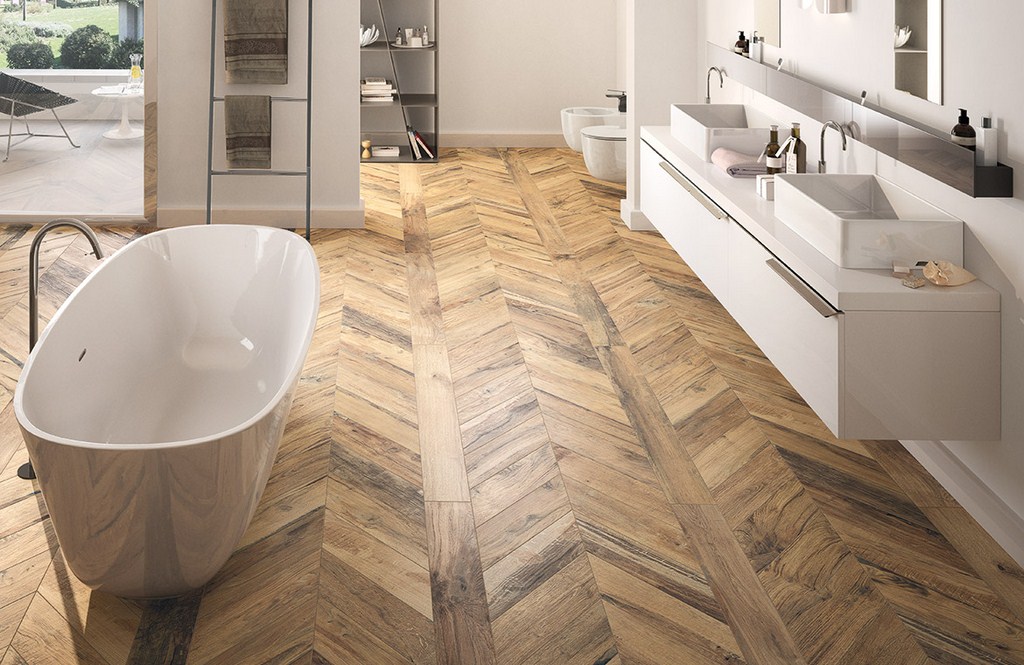
Grey Ash comes from Japan and belongs to the family of olives. This material has smooth opalescent surface and delicate silvery color.
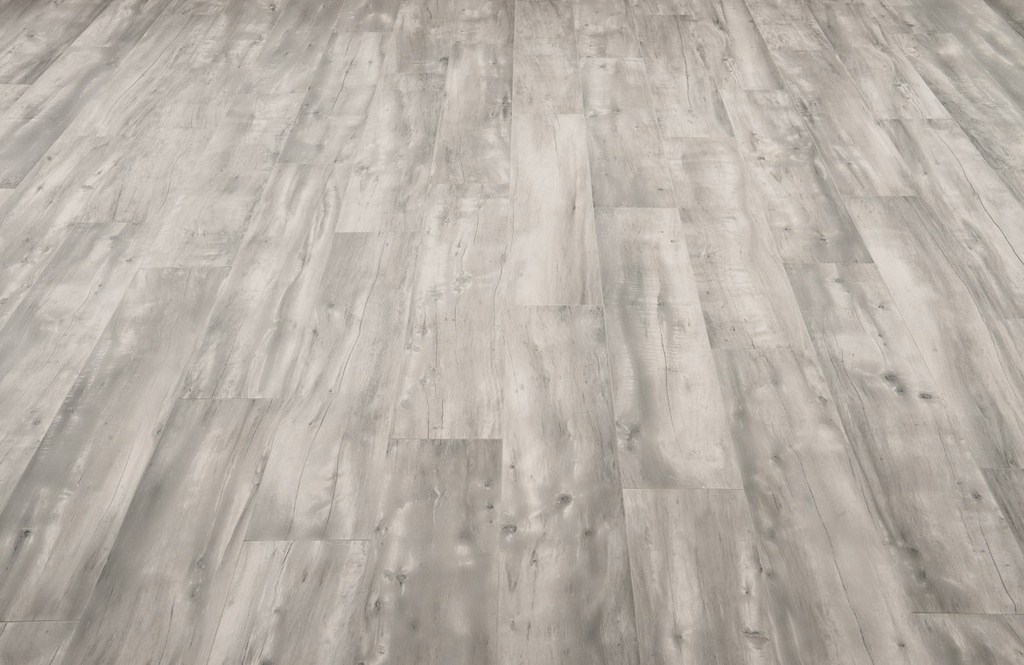
Kauri by La Fabbrica reproduces, perhaps, the rarest wood on the Earth, the epiobiotic coniferous species from New Zealand with intricate patterns and elegant color transitions.
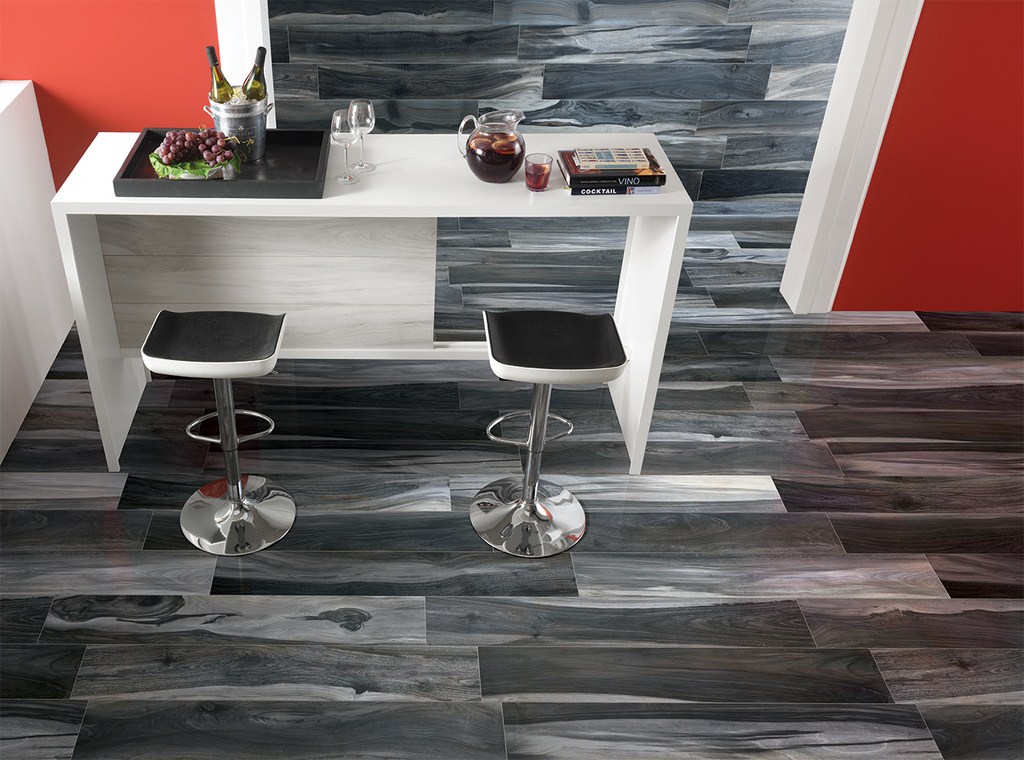
Urban Wood by Fioranese is one of the best interpretations of antiqued wood exposed to the external effects. The palette of Urban Wood consists solely of light shadings. Some tiles bear the traces of paint.
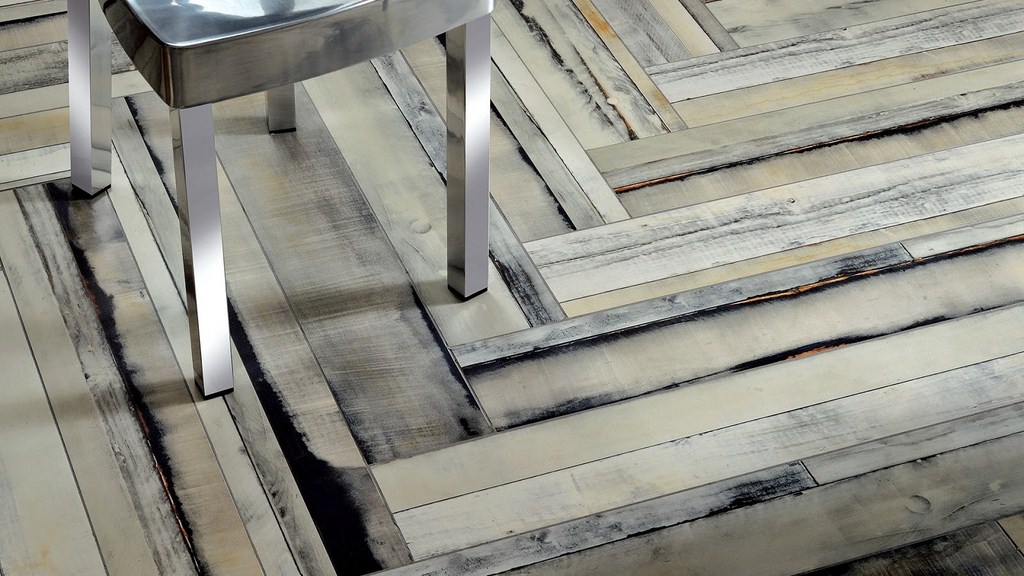
U-Color by 41zero42 has no rivals owing to the widest palette of 64 chromatic variations. However, the unique size of 7.5×30 cm is remarkably small for wood effect ceramic tile.
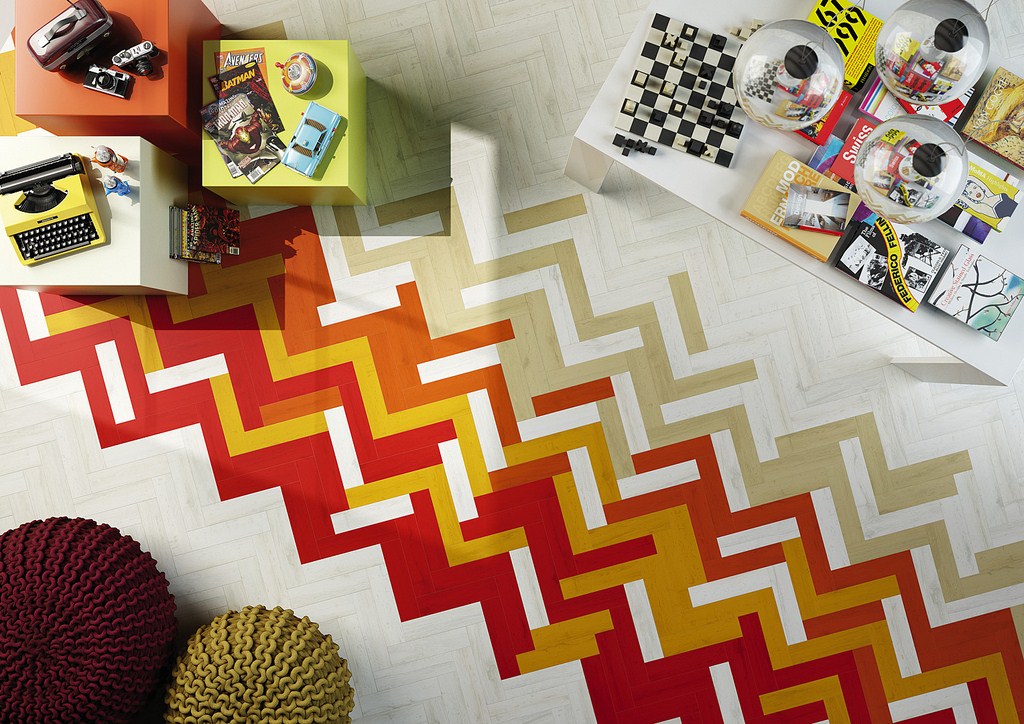
Artwork by Ornamenta is also worth mentioning. The series is elaborated in the pop-art style, which is sure to be one of the most fashionable current design trends. Like all portfolio of Ornamenta, this series captures the eye by vibrant colors. Promotion photos provide a glimpse of the core audience. These are young people, energetic, smart and successful.

The tiled surfaces combine several textures.
Rondine presents La Foresta di Gres, the complete range of wood effect porcelain stoneware. The brand-new products vividly demonstrate the creative quest of designers, their willingness to experiment while searching for new approaches to classical natural wood. Thus, the surface of Metalwood has unusual metallization effect. It glitters in the light.
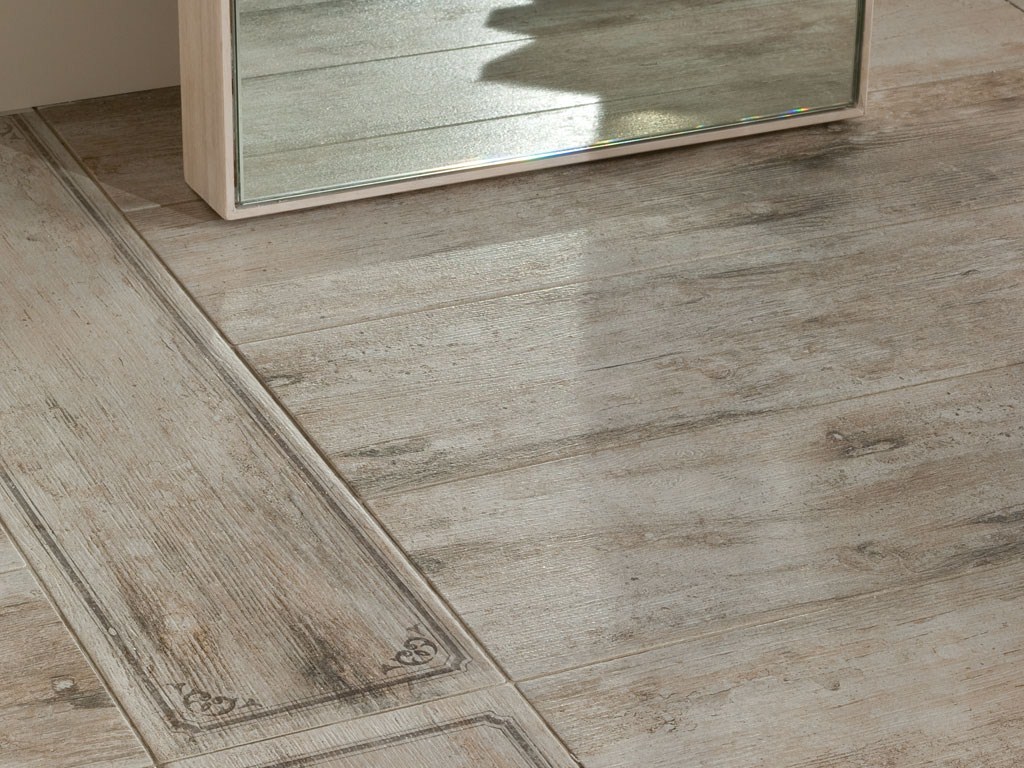
Amarcord by Rondine is an extraordinary fusion of terracotta and wood. Besides, both textures look like cement. The designers of Rondine suggest setting this tile either in two adjacent premises, or in different areas of the same room. What is more, Amarcord is enhanced by various decorative elements, mosaic and trims (skirtings, steps).
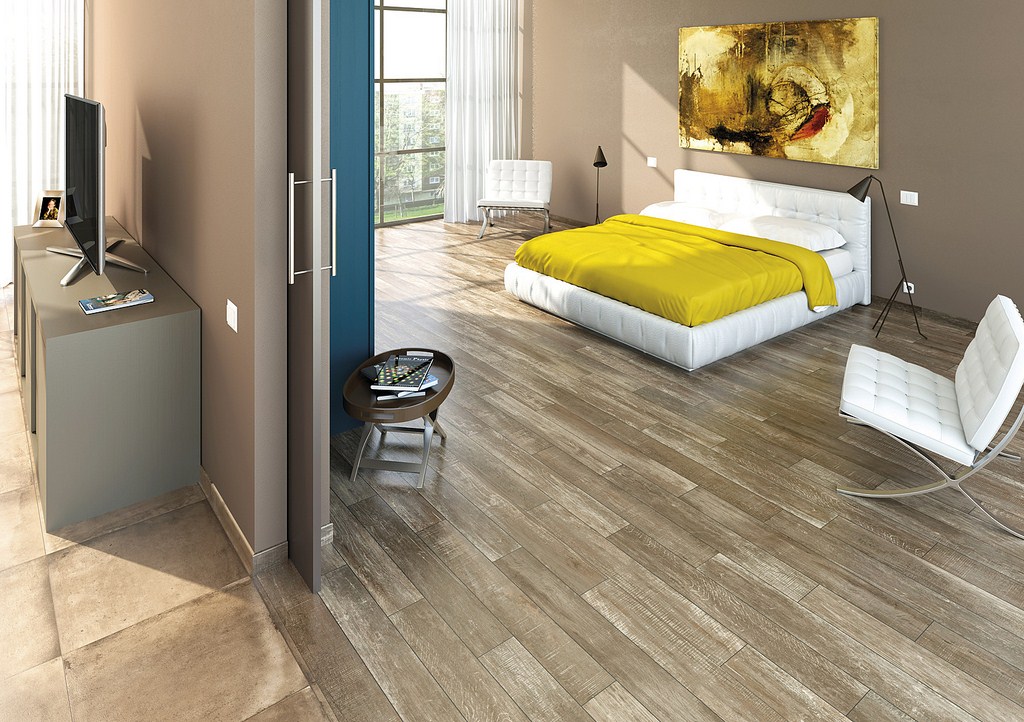
Boheme by Cisa is dedicated to antiqued wood and concrete. The squares of 50×50 cm artfully merge two incompatible textures.
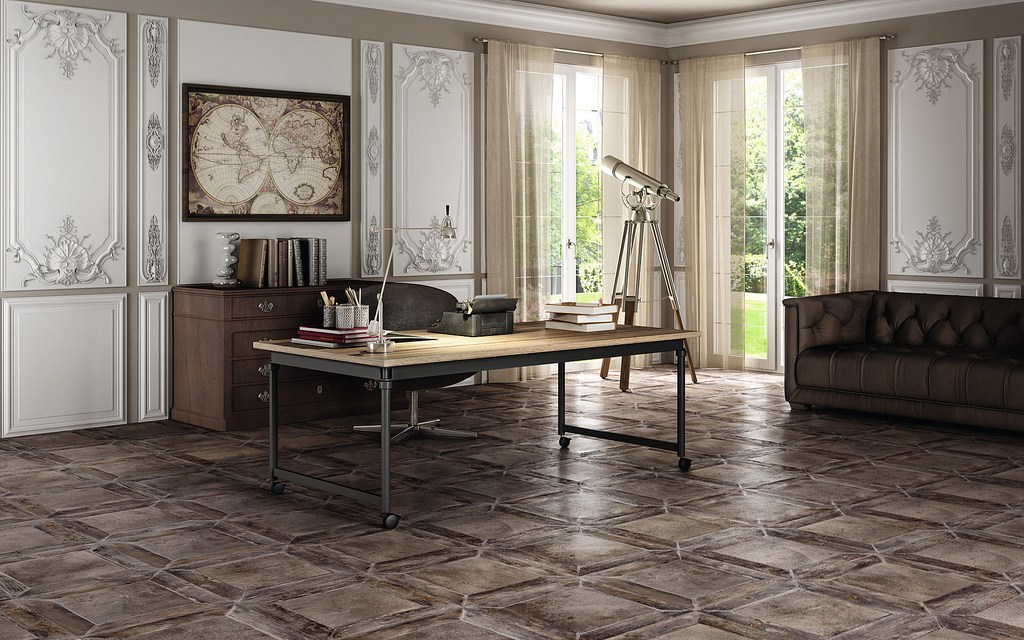
Similar combinations of materials are presented in Terra by Fap. However, here, the wood-imitating hexagons are sold separately to be set around the cement or terracotta effect tile.
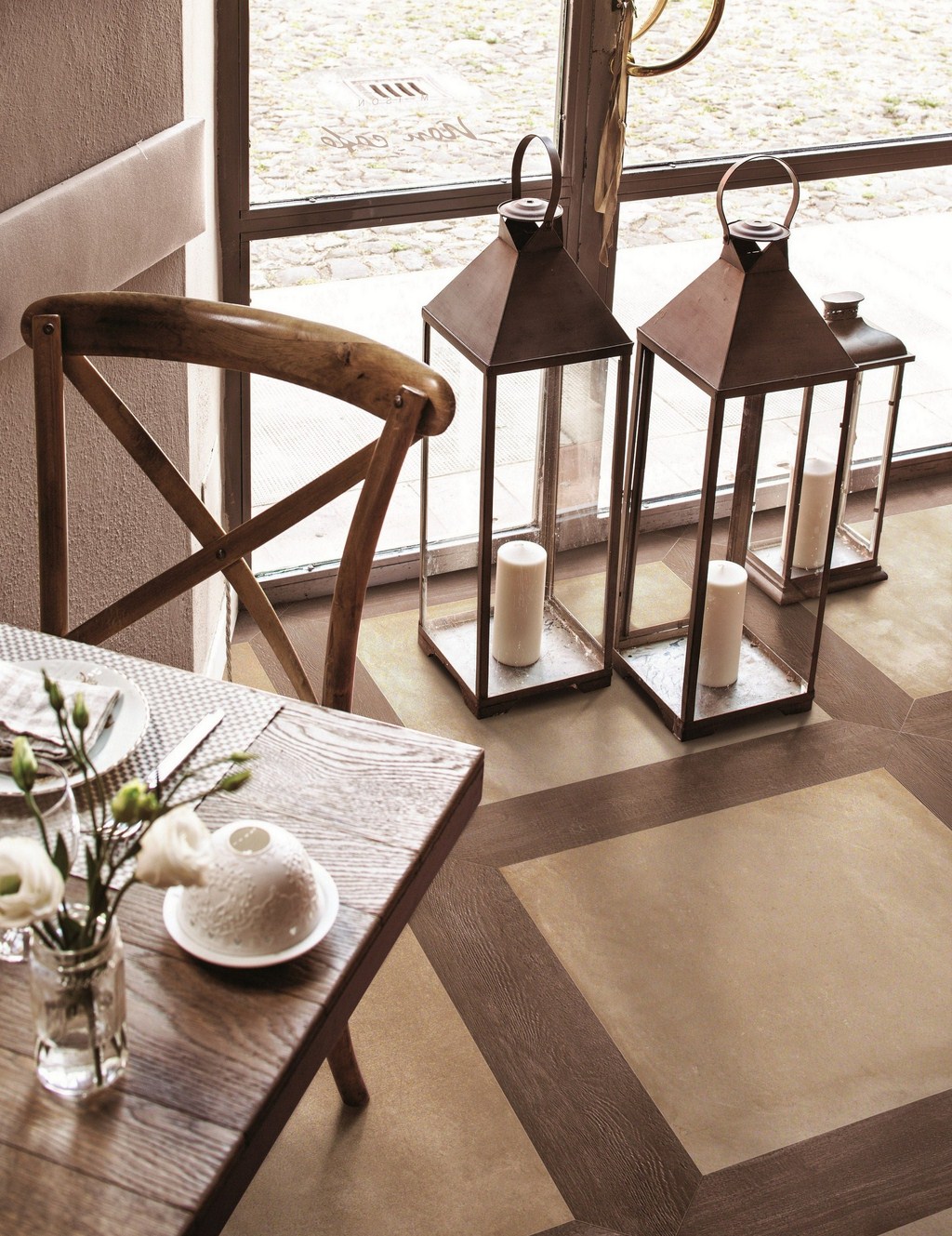
Unika porcelain stoneware by ABK is remarkable for wood inserted in stone substrate.
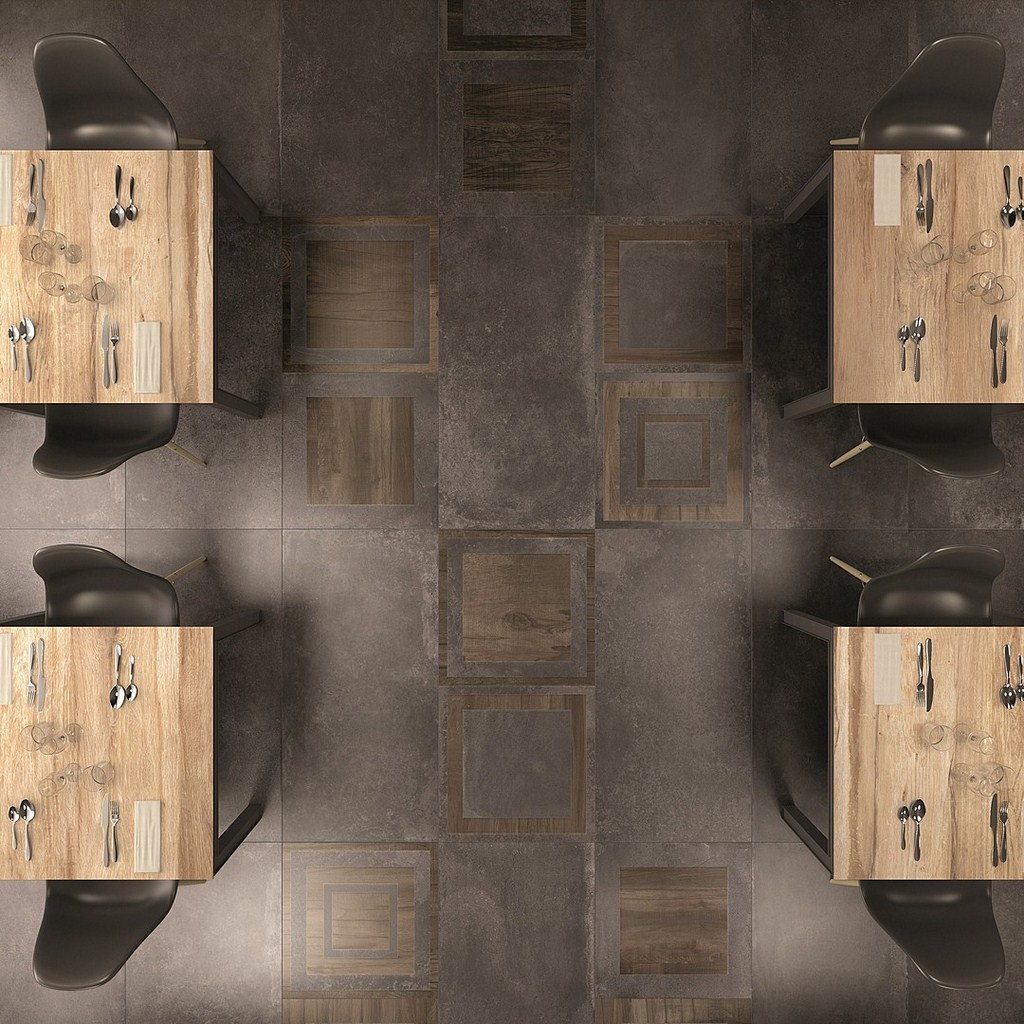
Finally, we would like to direct your attention to another creative wood-and-concrete mix by Kronos. Diagonally divided in two parts imitating wood and concrete (similarly to Boheme), the items of Trellis produce fanciful geometric layouts.
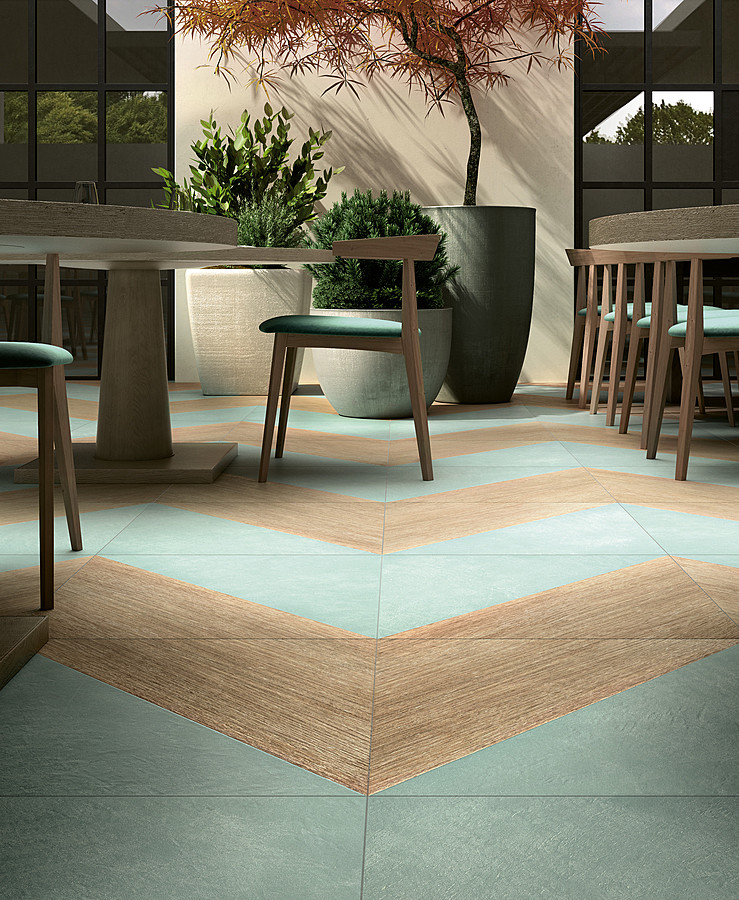

Italian Wood Effect Porcelain Stoneware. New Design and Production Trends 05.02.15
Questions & Answers Subscribe